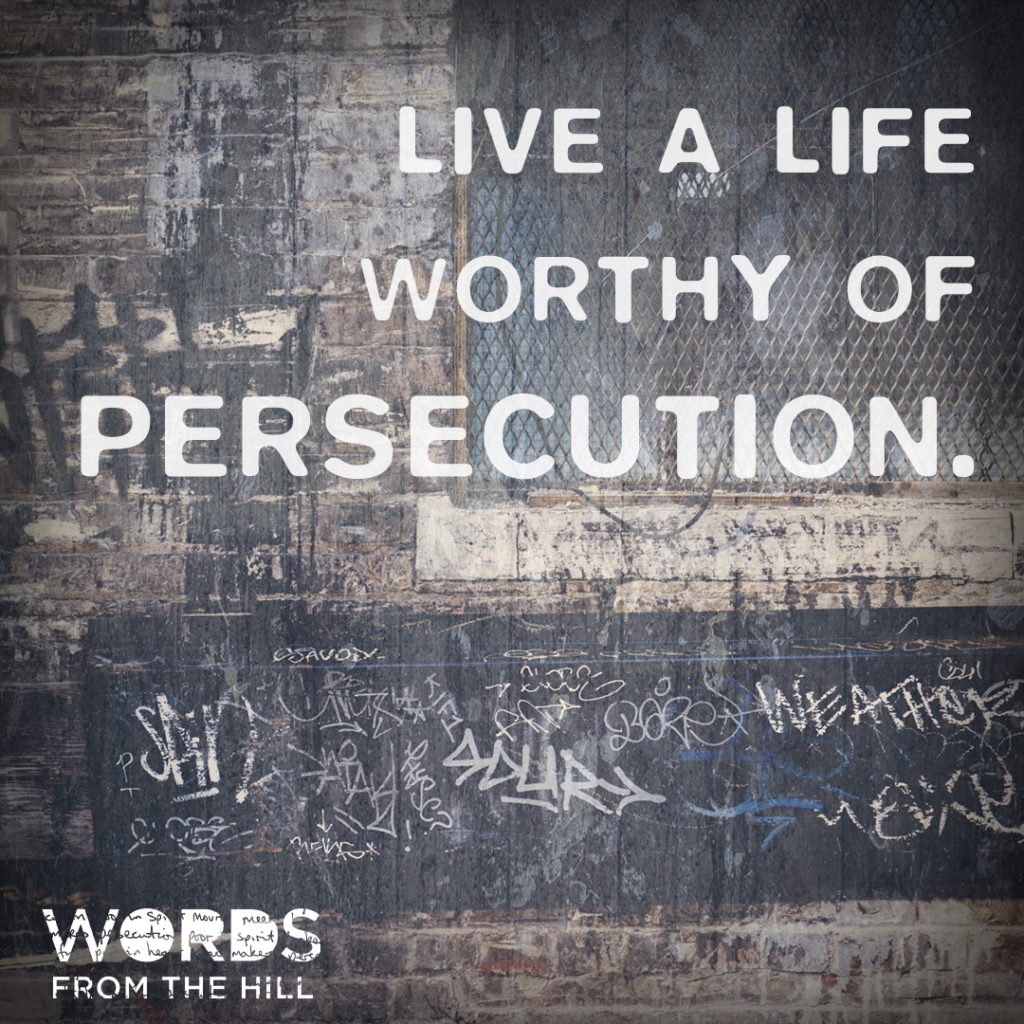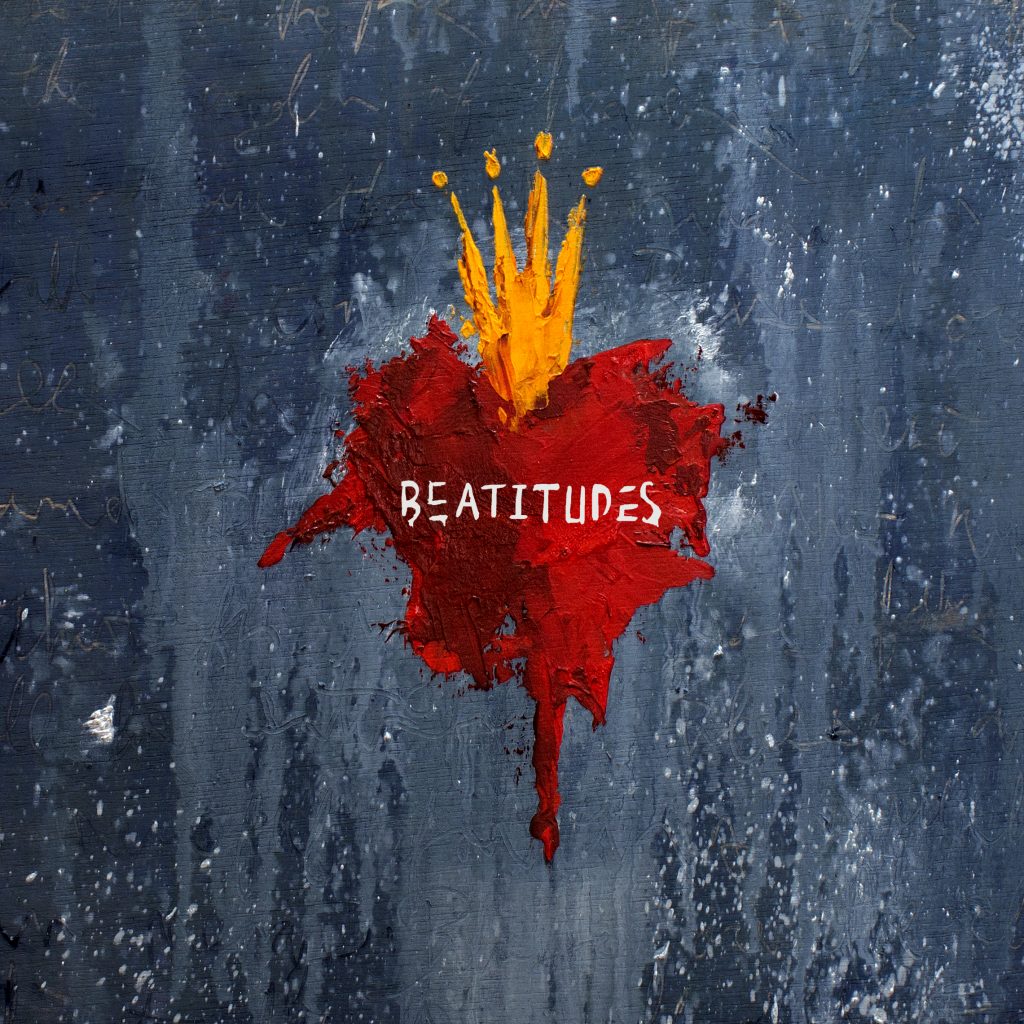While on this journey I keep thinking of those who suffer injustices in the world—the brave, super Christian heroes. I was going to tell the stories of those people in far-off lands doing extraordinary things. Stories that are helpful and I love, but that make me feel a bit small and couldn’t be told about me. But this is about me. And about you. And even in the midst of the stories, we can never forget that.
We will all have heroes, but it’s not ultimately about them. This is about us and our way of being. And this idea of persecution, this idea of swimming upstream, should cause us to ask a key question:
Who am I colluding with?
Are we colluding with the powers of our culture? Consumerism, greed, money, sex, violence, power, advertising, pushing to be first?
Or are we colluding with the upside-down message of this humble, nonviolent King and his counterintuitive Kingdom message? Are we with the poor, the brokenhearted, the meek, those hungry and thirsty for justice and wholeness? Do we show mercy because we have received mercy, and are our hearts becoming pure and undivided so we’re able to see God and the world in a different way, advocating for peace and mutual flourishing?
Rabbi Joseph constantly reminds me that Jesus rooted the Sermon on the Mount in the Leviticus 19 purity codes, (it’s fascinating to read Leviticus 19 and the Sermon on the Mount side by side). Leviticus 19 starts with God saying, “Be holy because I . . . am holy.”

To be holy means to be unique, to be different, to be set apart, and in the Beatitudes, Jesus lays out what this uniqueness looks like. Jesus shows us where God is and what he is doing and invites us to this unexpected life of imitating and following him.
A good friend of mine calls the people who hear this invitation and accept it “agents of disruption”—holy troublemakers.
Holy troublemakers are people who are compelled to live a life worthy of a pushback—a life worthy of persecution. They’re the people who don’t just hear the Beatitudes but who actually become the Beatitudes. They collude with this counterintuitive King and his upside-down message.
They swim upstream.
Testing times come.
They don’t get picked for the A team.
They are often misfits and misunderstood.
Holy troublemakers understand that where there’s persecution, there is suffering. And when we suffer for the cause of righteousness and justice, we connect with the suffering of the greatest misfit of all time.
So when you hear stories about heroes of the faith, please don’t go making it about “them” or counting yourself out of the picture because “there’s no way I can do that.” It’s not about the “super Christians”—this is about me and it’s about you, right where we are at, right here and right now.
So what does it actually look like for the rest of us?
I think we have to start by asking ourselves some hard questions:
- Who and what am I colluding with? The dominant powers at play in the world—or the One who shared the message of the Beatitudes?
- What am I resisting?
- Are there situations in everyday life where I’m being forced to go with the flow? What would happen if I said no?
- Who am I speaking out for? The homeless in my town? The woman at work on the receiving end of sexual jibes? The effeminate guy at school who’s getting bullied?
If I speak out—if I resist—am I willing to suffer for it? Because it might just happen.
And the words from the hill are speaking still: “You are blessed, God is on your side.”
This isn’t about striving to get persecuted. The Beatitudes are about receiving the grace that in our own poverty, brokenness, lack of power, and ache for justice we can hear the amazing, exuberant, counterintuitive announcement that God is on our side.
Maybe we need to do the absolutely necessary internal work
of showing ourselves mercy
of lifting our own heads
of not beating ourselves up
of healing our divided hearts
of receiving the gift of peace on the inside
And when we do, I believe the prophetic call to action to love God with all our heart and soul and mind, and to love our neighbor as ourselves, will follow.
Continue reading Words from the Hill: An Invitation to the Unexpected by Stu Garrard. Explore the beatitudes with Words from the Hill and the larger Beatitudes Project. The project also includes an album and documentary film.
Stu G is a guitarist and producer. He is best known for his time with Delirious? and now tours with Michael W. Smith. Stay up to date with him at stugworld.com.


Is this connected to the Navigators, and if so, how does one go about being mentored by one. I can use some help.
Hi Jack, NavPress is the publishing arm of the Navigators ministry. To connect with the Navigators you can go to their ministry website here- http://www.navigators.org/Ministries.
There are families that are inclusive and those that are exclusive. What a ministry to recognize children who are left out and include them in the blessings we enjoy! What could we do for the Kingdom if we practiced kindness to the least of these? Would they not naturally want to know what is different?
I just got done typing a transcript for this project and I just had to research it. I don’t know why but it’s spoken to me, like a whisper in my ear. I’m also a writer, and I don’t think it’s any coincidence that part of my revisions was making my two protagonists very much like this. Holy Troublemakers, reaching hands down to the downtrodden and facing up against the powers that be. I did that yesterday, and here I am today learning about this project. I hope that I can turn my work and my life into demonstrating these values, because they’re values that I, too, hold dear.
Preparing a lesson for our virtual Bible study tonight in the midst of Covid and BLM and cannot think of any better way to walk deeper into the role of holy troublemaker than this. Thank you.